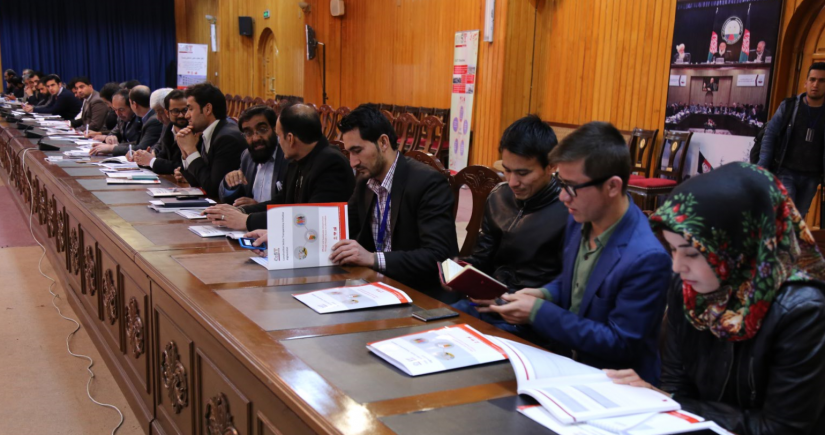CoST Afghanistan launched its Scoping Study on 16 March, exploring the opportunities for and challenges to infrastructure transparency. With strong representation across government, industry and civil society, and live streamed across various media channels, the launch event highlights the strong demand for infrastructure transparency development at a national level.
The Scoping Study identified that the most significant challenges to public infrastructure procurement remain around project delivery and completion. From consultation across stakeholders, key concerns included political influence on contract awards, beneficial ownership of contracting firms and insufficient or overlapping monitoring.
The Scoping Study comprises analysis of Afghanistan’s current framework for transparency and accountability, in addition to primary research on the transparency baseline for 20 public infrastructure project. Comprising works at both the national and provincial level, the projects cover pivotal sectors including agriculture, mining and energy. Key findings from the analysis include:
- Procuring Entities’ understanding of proactive disclosure generally aligned with the expectations of Afghan law and CoST principles; however, responses to requests for reactive disclosure often cited the need for an official letter to gain access to information, as opposed to acknowledging access to information rights.
- Information disclosure by donors is limited and inconsistent. Within the projects sampled, the Asian Development Bank (ADB) and the Islamic Development Bank (IDB) were the key donor funding sources. No disclosure was noted from IDB and in the case of ADB, though information was available online, it was not possible to verify disclosed data.
- Disclosure is often dispersed across numerous sources at project level but there is a lack of overview at ministerial level.
As many of Afghanistan’s procurement laws and regulations are relatively new, challenges remain on both the demand and supply side of information. With regards to demand, the Study noted that capacity is a major concern amongst the relevant stakeholders and cited Afghanistan’s significant illiteracy levels and high rural proportion. Whereas for supply of information, donors – who constitute a major proportion of public infrastructure funding in Afghanistan – often follow their own disclosure policies and practices and thereby escape the scrutiny of local institutions and actors.
The Scoping Study recommends that there is a focus on compliance with existing transparency laws as opposed to increasing legal requirements for disclosure. It highlights the need to create a culture of disclosure, advocating for a staged approach that strengthens institutions, builds trust, and recognises capacity requirements whilst realistically acknowledging the risks involved.
H.E Abdul Satar Murad, Minister of Economy and CoST Afghanistan’s Multi-Stakeholder Group Chairman, said: “Transparency in the infrastructure sector to prevent misuse of government investment is a vital issue. It is important for the government, civil society and private sector as Multi Stakeholder Group (MSG) members to understand where precisely the weaknesses and failings are in the infrastructure sector and to identify challenges and propose solutions.”
Mr. Sebghatullah Karimi, CoST Afghanistan National Coordinator, said: “Unfortunately, each year a significant amount of the national budget is wasted due to mismanagement and corruption. CoST, through disclosure of infrastructure project information, identifies the weaknesses and strengths and provides technical recommendations to the Government in order to bring about reforms.”
Mr. Ahmadullah Mauj, Programme Manager, Integrity Watch Afghanistan, said: “Integrity Watch Afghanistan is honoured to be a member of the CoST Afghanistan Multi-Stakeholder Group (MSG) and have managed and implemented this Scoping Study successfully. Access to information is a key right and CoST Afghanistan will assure the disclosure of information from beginning to end of an infrastructure project lifecycle.”
The complete Scoping Study is available to download here. The Study will guide CoST Afghanistan’s disclosure, assurance and multi-stakeholder working at the national level. To find out more about the programme, please visit the CoST Afghanistan website or follow developments via the CoST Afghanistan Facebook page.
